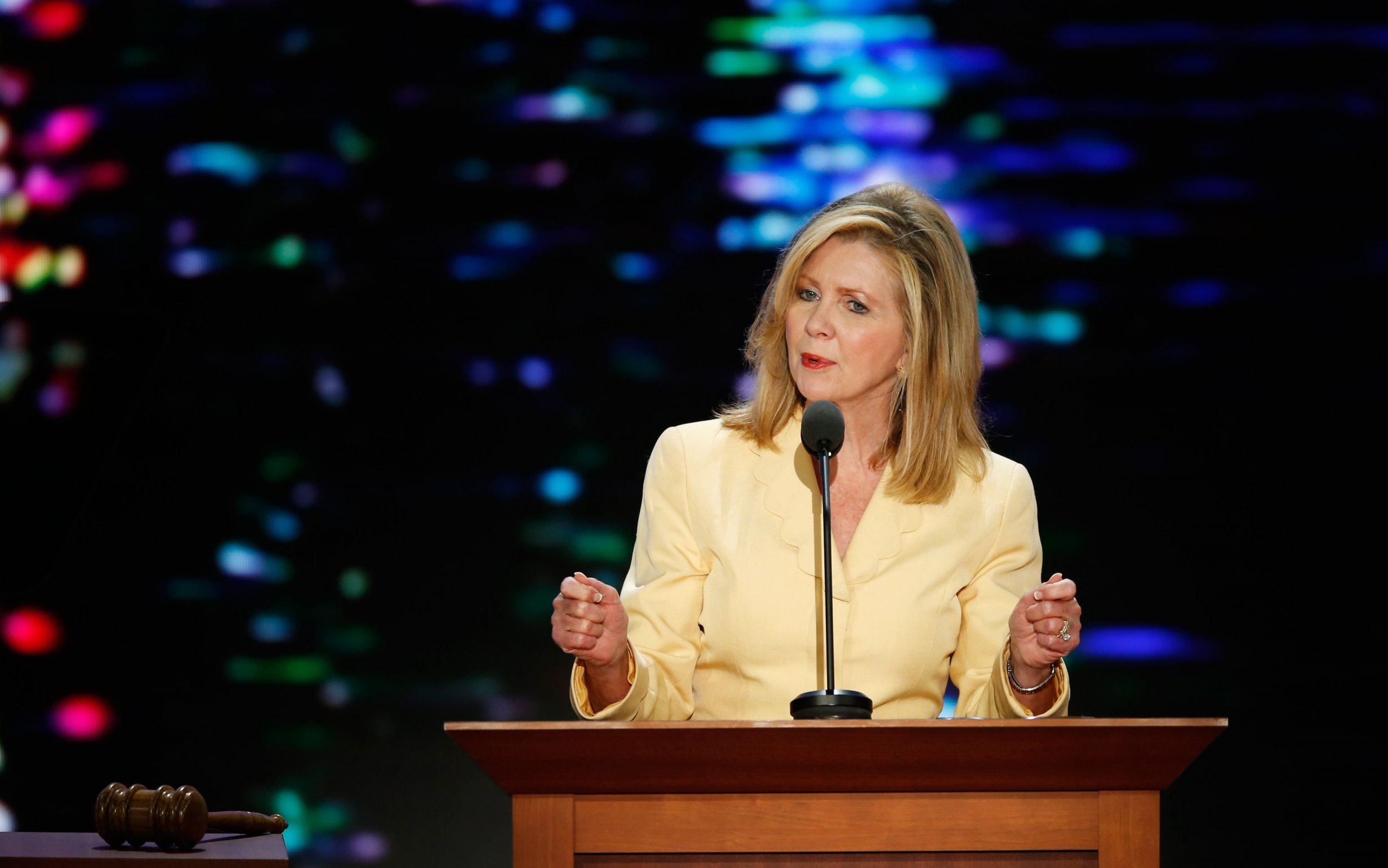
Last week, Rep. Marsha Blackburn (R-Tenn.) introduced the "Internet Freedom Act"—legislation that would nullify the Federal Communications Commission's (FCC) new network neutrality rules. This counter-legislation came as no surprise, as Republicans had warned of "ongoing efforts" to oppose the FCC's move. But what has many concerned are recent revelations that Blackburn and all but two of the bill's 31 co-sponsors received thousands of dollars from telecoms in the last election cycle.
Late last month, the FCC voted to use its power under Title II of the 1934 Communications Act to reclassify broadband Internet as a telecommunications service. The new classification allows the commission to put in place regulations mandating that Internet service providers (ISPs) like Comcast, Verizon and AT&T, transmit all Web traffic at the same speed, regardless of commercial interests. This idea of "open Internet," commonly known as net neutrality, ensures that as long as the content requested is lawful, it will all be delivered at the same speed.
"The Internet is simply too important to allow broadband providers to be the ones making the rules," FCC Chairman Tom Wheeler said prior to the vote. "This is no more a plan to regulate the Internet than the First Amendment is a plan to regulate free speech. They both stand for the same concept: openness, expression and an absence of gatekeepers telling people what they can do, where they can go and what they can think."
But net neutrality opponents argue that these regulations will hurt competition, make networks less profitable and discourage investment. The proposed "Internet Freedom Act" reads:
"The rule...shall have no force or effect, and the Commission may not reissue such rule in substantially the same form..."
Blackburn added in a press release, "My legislation will put the brakes on this FCC overreach and protect our innovators from these job-killing regulations."
But there may be another reason Blackburn opposes net neutrality—she received at least $80,000 from telecommunications companies last election cycle. According to the Center for Responsible Politics, Blackburn received $25,000 from AT&T, $20,000 from Comcast, $20,000 from the National Cable and Telecommunications Association and $15,000 from Verizon.
And she is not alone. Twenty-nine of the legislation's co-sponsors received more than $800,000 from Verizon, Comcast, Time Warner Cable and the National Cable and Telecommunications Association, the Daily Beast reports.
Tim Karr, the senior director of strategy at Free Press—a nonprofit advocating for Internet consumer rights—said to the Daily Beast that these election donations, nearing a million dollars, pale in comparison to the amount of money ISPs would gain and the amount they would donate to future campaigns if net neutrality was killed.
Uncommon Knowledge
Newsweek is committed to challenging conventional wisdom and finding connections in the search for common ground.
Newsweek is committed to challenging conventional wisdom and finding connections in the search for common ground.
About the writer
Lauren is a reporter covering technology, national security and foreign affairs. She has previously worked on award winning teams at ... Read more
To read how Newsweek uses AI as a newsroom tool, Click here.








